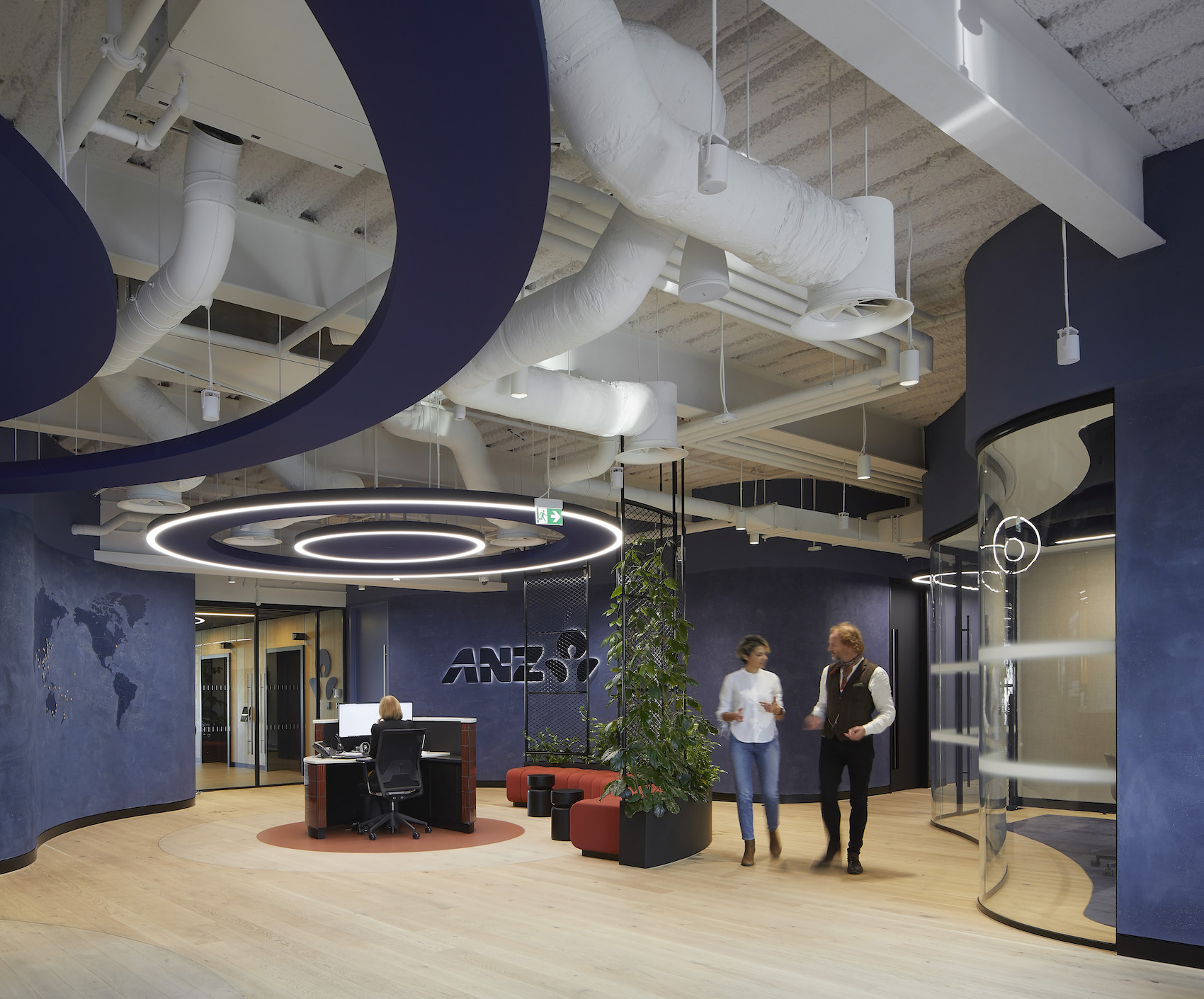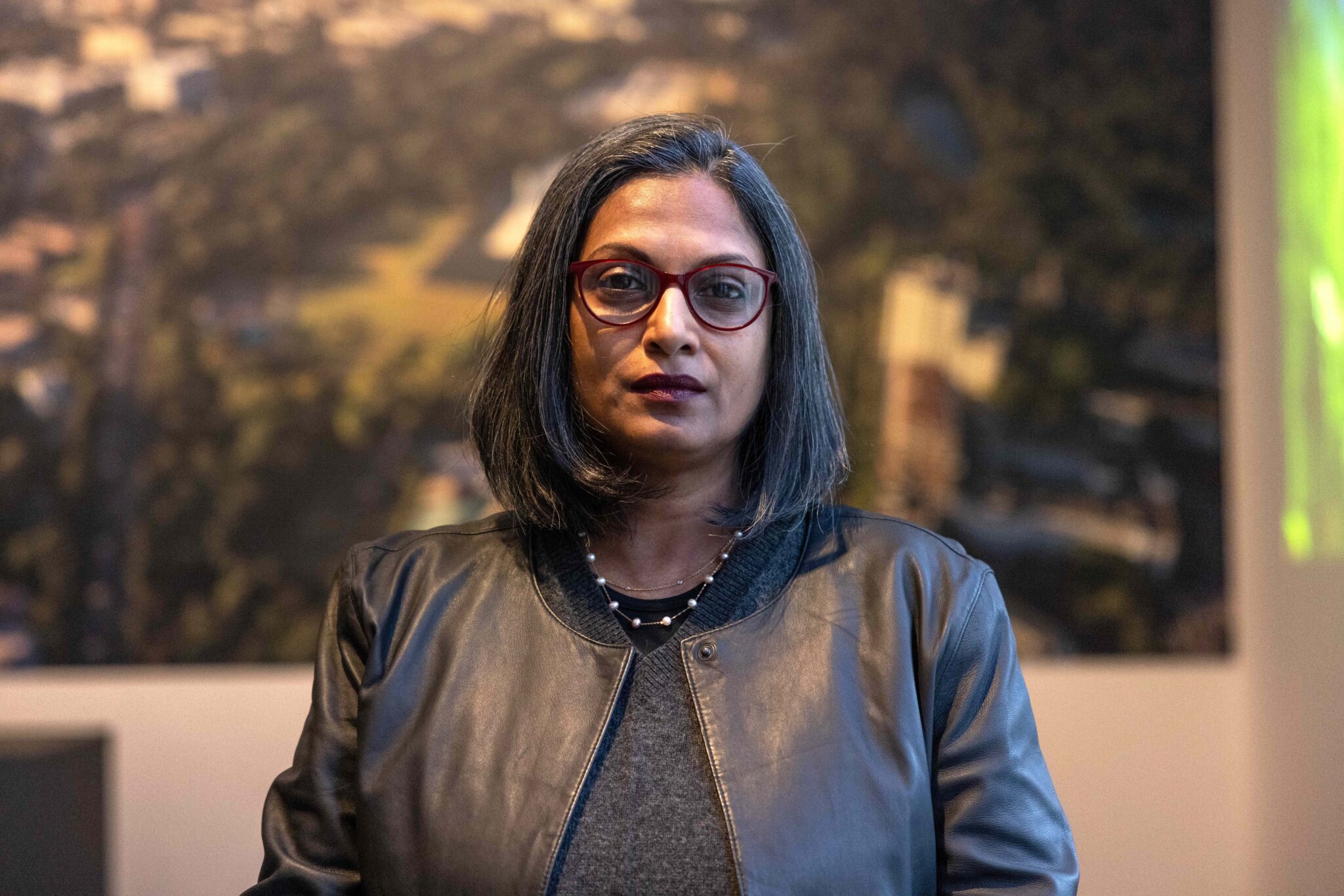AT chats to… Chris Webb from tp bennett about embedding sustainability know-how across the practice, early engagement with suppliers and unleashing the power of technology.
Tp bennett’s recent fit-out for ANZ Bank in London. Early engagement with suppliers of sustainable materials through tp bennett’s AD Lib platform was essential in achieving the client’s commitment to reducing their global footprint. Photograph by Hufton+Crow.
You’re head of sustainability at tp bennett. What does that entail?
There’s nine of us in the team, but we share a couple of people with other teams, so it’s maybe equivalent to six full time staff. That’s still only one of us per 50 designers across the practice. It’s our job to make sure the practice’s sustainability ethos runs through every project. We carry out sustainability workshops on every job, once at concept stage and then at Stage 2, but we know that sustainability won’t be fully embedded in the practice until we educate and empower all 50 of those designers. So a lot of our work is about internal knowledge sharing.
What else have you been working on?
We contributed to the circular economy and responsible sourcing section of the new BCO guide. We’re heavily focussed on materials. We’ve developed a software tool, Ad Lib, which is a searchable platform with data on the environmental credentials of different products and materials. It includes data on 65 key questions about different issues. It’s not always straightforward. So for example you can get a product with amazing carbon credentials that has to be flown in from abroad. But at least our colleagues will have that information and it will enable them to make an informed decision.
Have you ever used a poor rating as a basis for a discussion with a supplier about improving what they do?
Yes. If they’re happy to put in the time, we’re happy to sit down with them and go through it. It’s really rewarding. A lot of them have taken it as free consultancy to identify weak points in what they do and change what they produce. So for example Shadbolt, who produce doors and panels and cubicles, have really gone to town with their water-based lacquers. They used to have plastic protectors as packaging on the corners of the door they produce. We spoke to the site contractors who said they always end up going to waste. So we spoke to Shadbolt and they replaced them with timber offcuts.
Do you have to be digitally literate to do your job?
We’ve tried to make the tools we’ve developed as easy to use as possible. And there are all sorts of really useful tools out there. We’ve used H\B:ERT, the tool developed by Hawkins\Brown which allows you to analyse the embodied carbon emissions of different building components and materials. I really hope we can give back by open sourcing AD Lib. Technology is great, but it’s never going to take the place of good decision making. The first thing you have to do is ask if you need to use that product at all. If you do, you need to think about the best available option. That’s where AD Lib comes in. Then you have to think about how it’s installed and whether it can come out and be repaired, and what happens when it’s not needed any more. We’ve got into this bad habit of sticking things down. It causes air quality issues, but it also makes things difficult to demount and use again. My mantra is ‘screw it, don’t glue it’.
We’ve got a sustainable innovations and tech group which is led by other members of the sustainability team. We are becoming more focused on digital solutions and data, which I think is a positive thing. It’s a really good way to get the younger people engaged and empower them. I feel like there’s this massive untapped pool of people in architectural practices who have learnt skills in university that haven’t been transposed into practice.
Are you optimistic about the future?
My concern is that there’s been a drop in momentum. There was that moment when Extinction Rebellion was organising those marches in London and it felt as thought the world had really woken up to the scale of the climate crisis. But it feels as though the message has stopped hitting home. As a profession, we have a massive responsibility to practice what we preach. We can’t wait for legislation to sort us out.
Chris Webb is head of sustainability at tp bennett.















